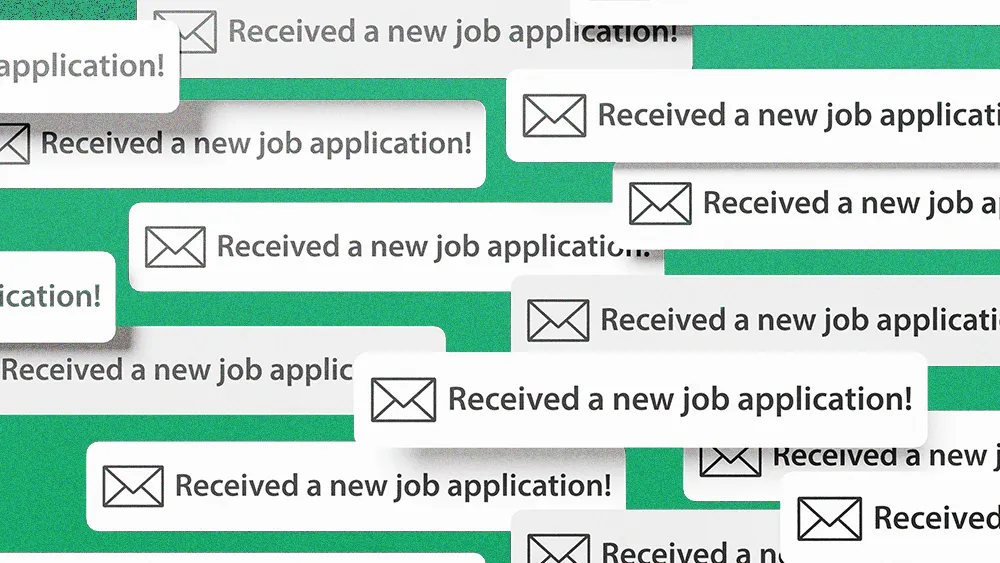Remote work dreams fade as Google mandates office return to fuel AI race

Key Points
Google mandates hybrid work schedules for Technical Services and HR teams, requiring in-office presence at least three days a week.
The shift is driven by Google’s focus on accelerating AI development, with co-founder Sergey Brin advocating for increased office presence.
The move reflects a broader trend in Silicon Valley, as companies roll back pandemic-era remote work flexibility.
The pandemic-era dream of permanent remote work is fading fast at Google, replaced by the stark urgency of the AI arms race. The tech giant is now betting that forcing key teams back into physical proximity will sharpen its competitive edge, signaling a decisive shift away from employee flexibility.
Specific teams targeted: Google is requiring many remote employees within its Technical Services and People Operations (HR) divisions to adopt a hybrid schedule, reporting to a physical office at least three days a week, or face potential job loss, according to internal documents viewed by CNBC. The move impacts even some staff previously approved for permanent remote work arrangements.
AI urgency drives mandate: The push aligns with Google’s intense focus on accelerating artificial intelligence development amidst fierce competition. Co-founder Sergey Brin told AI workers earlier this year that the company must “turbocharge” efforts, suggesting employees should be in the office daily, and that 60 hours per week was the “sweet spot of productivity.”
Tough decisions: Employees in the affected units are being presented with an ultimatum: switch to a hybrid schedule or accept voluntary exit packages. Google Technical Services staff are being offered one-time relocation assistance if they move within 50 miles of an office. For remote HR staff living within that radius, compliance with a hybrid schedule was reportedly required by mid-April to avoid role elimination, per an internal memo seen by CNBC.
Collaboration rationale: Officially, Google frames the decision around innovation. “As we’ve said before, in-person collaboration is an important part of how we innovate and solve complex problems,” Google spokesperson Courtenay Mencini told CNBC. “To support this, some teams have asked remote employees that live near an office to return to in-person work three days a week.”
Rolling back remote promises: This targeted mandate represents a significant rollback of the flexibility championed by many tech companies, including Google, during the early days of the pandemic. For employees who relocated based on permanent remote approval, the change forces a difficult reassessment of their roles and priorities.
Broader cost-cutting context: The RTO push arrives amidst Google’s ongoing efforts to streamline operations and cut costs while heavily investing in AI infrastructure and talent. The company initiated widespread layoffs in early 2023 and offered voluntary buyouts to various teams earlier in 2025. Google’s workforce shrank from approximately 190,000 employees two years ago to around 183,000 by the end of last year.
Industry power shift: Google’s move mirrors a broader trend across Silicon Valley, where companies are reasserting control and dialing back pandemic-era perks. As noted by commentators like those at Gizmodo, the leverage appears to be shifting back to employers after years where tech talent held significant sway, forcing workers to adapt to the new priorities set by leadership.
Related articles
TL;DR
Google mandates hybrid work schedules for Technical Services and HR teams, requiring in-office presence at least three days a week.
The shift is driven by Google’s focus on accelerating AI development, with co-founder Sergey Brin advocating for increased office presence.
The move reflects a broader trend in Silicon Valley, as companies roll back pandemic-era remote work flexibility.
The pandemic-era dream of permanent remote work is fading fast at Google, replaced by the stark urgency of the AI arms race. The tech giant is now betting that forcing key teams back into physical proximity will sharpen its competitive edge, signaling a decisive shift away from employee flexibility.
Specific teams targeted: Google is requiring many remote employees within its Technical Services and People Operations (HR) divisions to adopt a hybrid schedule, reporting to a physical office at least three days a week, or face potential job loss, according to internal documents viewed by CNBC. The move impacts even some staff previously approved for permanent remote work arrangements.
AI urgency drives mandate: The push aligns with Google’s intense focus on accelerating artificial intelligence development amidst fierce competition. Co-founder Sergey Brin told AI workers earlier this year that the company must “turbocharge” efforts, suggesting employees should be in the office daily, and that 60 hours per week was the “sweet spot of productivity.”
Tough decisions: Employees in the affected units are being presented with an ultimatum: switch to a hybrid schedule or accept voluntary exit packages. Google Technical Services staff are being offered one-time relocation assistance if they move within 50 miles of an office. For remote HR staff living within that radius, compliance with a hybrid schedule was reportedly required by mid-April to avoid role elimination, per an internal memo seen by CNBC.
Collaboration rationale: Officially, Google frames the decision around innovation. “As we’ve said before, in-person collaboration is an important part of how we innovate and solve complex problems,” Google spokesperson Courtenay Mencini told CNBC. “To support this, some teams have asked remote employees that live near an office to return to in-person work three days a week.”
Rolling back remote promises: This targeted mandate represents a significant rollback of the flexibility championed by many tech companies, including Google, during the early days of the pandemic. For employees who relocated based on permanent remote approval, the change forces a difficult reassessment of their roles and priorities.
Broader cost-cutting context: The RTO push arrives amidst Google’s ongoing efforts to streamline operations and cut costs while heavily investing in AI infrastructure and talent. The company initiated widespread layoffs in early 2023 and offered voluntary buyouts to various teams earlier in 2025. Google’s workforce shrank from approximately 190,000 employees two years ago to around 183,000 by the end of last year.
Industry power shift: Google’s move mirrors a broader trend across Silicon Valley, where companies are reasserting control and dialing back pandemic-era perks. As noted by commentators like those at Gizmodo, the leverage appears to be shifting back to employers after years where tech talent held significant sway, forcing workers to adapt to the new priorities set by leadership.




